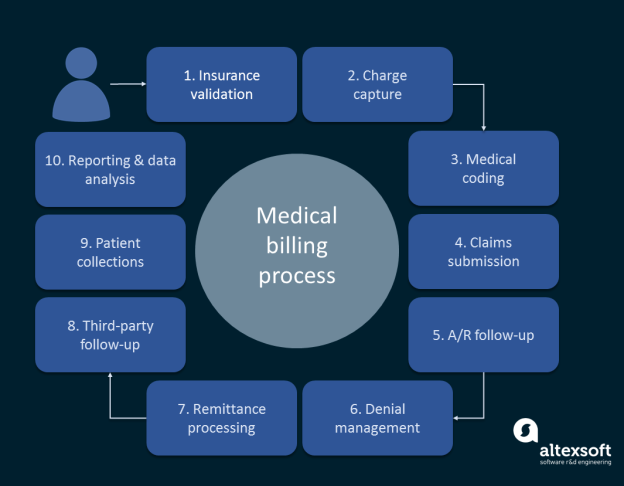Medical billing and coding plays a crucial role in the healthcare industry by ensuring accurate and efficient processing of patient information, insurance claims, and financial transactions. This article explores the various types of medical billing and coding, uncovering the intricacies associated with each specialization. By shedding light on outpatient coding, inpatient coding, and professional coding, you will gain a comprehensive understanding of the diverse roles and responsibilities within this vital field. Whether you are a healthcare professional seeking to enhance your knowledge or an aspiring medical coder looking to enter this in-demand career, this article will provide valuable insights into the different types of medical billing and coding.
Overview
Medical Billing and Coding Defined
Medical billing and coding is a crucial aspect of healthcare administration. It involves the process of translating medical procedures, diagnoses, and treatments into universally recognized codes. These codes are then used for billing and reimbursement purposes by healthcare providers and insurance companies. Medical billers and coders play a vital role in ensuring accurate and efficient financial transactions within the healthcare industry.
Types of Medical Billing and Coding
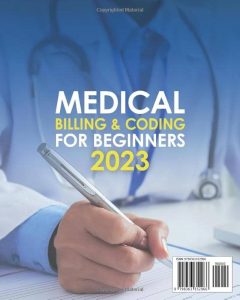
Outpatient Medical Billing and Coding
Outpatient medical billing and coding refer to the process of coding and billing for healthcare services that are provided on an outpatient basis. These services are typically offered in clinics, physician offices, or other non-hospital settings where patients do not stay overnight. Outpatient medical billers and coders are responsible for documenting and coding all the procedures and services rendered during outpatient visits.
Inpatient Medical Billing and Coding
Inpatient medical billing and coding focus on coding and billing for healthcare services provided to patients who require hospitalization. These services include surgeries, treatments, and other procedures that are carried out during a patient’s stay in a hospital. Inpatient medical billers and coders ensure that all the diagnoses, treatments, and procedures are accurately coded to reflect the services provided during the patient’s hospitalization.
Professional Medical Billing and Coding
Professional medical billing and coding involve coding and billing for services provided by individual healthcare providers, such as physicians and nurses. These professionals often provide services in their own private practices or as part of a larger healthcare organization. Professional medical billers and coders handle the coding and billing for these individual providers, ensuring accurate reimbursement for their services.
Facility Medical Billing and Coding
Facility medical billing and coding focus on coding and billing for healthcare services provided by healthcare facilities, such as hospitals, clinics, and nursing homes. Facility medical billers and coders are responsible for accurately coding and billing for the services provided in these healthcare settings. They ensure that all the procedures, tests, and treatments carried out within the facility are properly documented and coded for reimbursement.
Specialty-Specific Medical Billing and Coding
Specialty-specific medical billing and coding refer to the specialization in coding and billing for specific medical specialties. Different medical specialties may have unique coding requirements and specific billing guidelines. Specialty-specific medical billers and coders possess in-depth knowledge of the specific coding systems and guidelines related to their particular medical field. They ensure that accurate coding is done to reflect the specialized services provided by healthcare professionals in specific specialties.
Outpatient Medical Billing and Coding
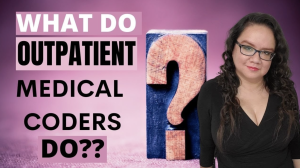
Outpatient medical billing and coding involve encoding and billing for healthcare services provided in outpatient settings. These settings include clinics, physician offices, and other non-hospital facilities where patients do not require overnight stays. Outpatient medical billers and coders play a crucial role in ensuring accurate documentation and coding to enable proper reimbursement for the services provided.
Responsibilities
In outpatient medical billing and coding, you would be responsible for various tasks. These include reviewing medical records, identifying the procedures and services provided, assigning appropriate codes to each service, and submitting claims for reimbursement. You would also need to ensure that all the coding is done accurately and in compliance with industry standards and guidelines.
Skills Required
To excel in outpatient medical billing and coding, you would need a solid set of skills. These include a deep understanding of medical coding systems, such as Current Procedural Terminology (CPT) and International Classification of Diseases (ICD). Attention to detail is crucial to ensure accurate coding and billing. You should also have good analytical and problem-solving skills to troubleshoot any coding or billing issues that may arise.
Software and Tools
In outpatient medical billing and coding, you would commonly use electronic health records (EHR) software to access and review patient records. You would also need specialized medical coding software, such as EncoderPro and CodeManager, to assign the appropriate codes. Billing and practice management software, such as Epic Resolute or AthenaCollector, would be essential for submitting claims and managing the financial aspects.
Inpatient Medical Billing and Coding
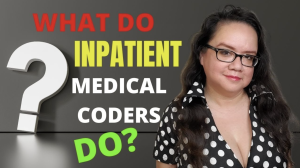
Inpatient medical billing and coding involve coding and billing for healthcare services provided to patients who require hospitalization. These services encompass a wide range of procedures, surgeries, and treatments carried out during a patient’s stay in a hospital. Accurate and detailed coding is essential to ensure appropriate reimbursement and smooth financial transactions.
Responsibilities
As an inpatient medical biller and coder, your responsibilities would include reviewing medical records, verifying the procedures and treatments provided, assigning codes to each service, and submitting claims for reimbursement. You would need to pay close attention to detail to ensure accurate coding and billing. Collaboration with healthcare providers and other stakeholders may also be necessary to clarify any coding or documentation discrepancies.
Skills Required
To succeed in inpatient medical billing and coding, you must have extensive knowledge of coding systems specific to inpatient services, such as ICD-10 and Procedure Coding System (PCS). Attention to detail is crucial to accurately reflect the complex procedures and services provided during a patient’s hospital stay. Good communication skills are important for clarifying coding discrepancies with healthcare providers and other professionals involved in the patient’s care.
Software and Tools
In inpatient medical billing and coding, you would require electronic health records (EHR) software to access and review patient records. Medical coding software, such as 3M Codefinder and Optum Encoder, would be used for assigning the appropriate codes. Billing and practice management software, such as Cerner Millenium or Meditech Revenue Cycle Management, would be necessary for submitting claims and managing the financial aspects.
Professional Medical Billing and Coding
Professional medical billing and coding encompass coding and billing for services provided by individual healthcare providers, such as physicians, nurses, and other allied healthcare professionals. These professionals often work in private practices or as part of larger healthcare organizations. Professional medical billers and coders ensure that accurate coding is done to reflect the services provided by these individual providers.
Responsibilities
As a professional medical biller and coder, your responsibilities would include reviewing documentation, determining the appropriate codes for the procedures and services provided, and submitting claims for reimbursement. You would need to have a thorough understanding of the coding systems, such as CPT and ICD, relevant to the services rendered by individual healthcare providers. Accuracy and attention to detail are vital to ensure correct reimbursement.
Skills Required
To excel in professional medical billing and coding, you would need a strong command of the coding systems applicable to the services provided by individual healthcare providers. An excellent knowledge of medical terminology is crucial to accurately assign the appropriate codes. Attention to detail, analytical skills, and problem-solving abilities are necessary to navigate any coding or billing challenges that may arise.
Software and Tools
In professional medical billing and coding, you would commonly use electronic health records (EHR) software to access and review patient records. Medical coding software, such as Find-A-Code and SpeedyCoder, would be utilized to assign the relevant codes. Billing and practice management software, like Kareo or AdvancedMD, would enable you to submit claims and manage the financial aspects efficiently.
Facility Medical Billing and Coding
Facility medical billing and coding involve coding and billing for healthcare services provided by healthcare facilities, including hospitals, clinics, and nursing homes. Facility medical billers and coders are responsible for accurately coding and documenting the services provided within these healthcare settings to ensure proper reimbursement.
Responsibilities
As a facility medical biller and coder, your responsibilities would include reviewing medical records, identifying the procedures and treatments provided, assigning the appropriate codes, and submitting claims for reimbursement. You would need to verify that all the coding is accurate and compliant with industry standards and guidelines. Collaboration with healthcare providers and other stakeholders may be necessary to clarify any coding or documentation discrepancies.
Skills Required
To succeed in facility medical billing and coding, you would need a comprehensive understanding of coding systems specific to facility services, such as ICD-10 and Healthcare Common Procedure Coding System (HCPCS). Attention to detail is crucial to accurately reflect the various services provided within a healthcare facility. Strong organizational skills and the ability to work with diverse healthcare professionals are important for effective collaboration and workflow management.
Software and Tools
In facility medical billing and coding, you would frequently utilize electronic health records (EHR) software to access and review patient records. Specialized medical coding software, like EncoderPro and Find-A-Code Facility Edition, would be used to assign the appropriate codes. Billing and practice management software, such as NextGen and AdvancedMD, would assist in submitting claims and managing the financial aspects of facility services.
Specialty-Specific Medical Billing and Coding
Specialty-specific medical billing and coding refer to the specialization in coding and billing for specific medical specialties. Different medical specialties may have unique coding requirements and specific billing guidelines. Specialty-specific medical billers and coders possess in-depth knowledge of the specific coding systems and guidelines related to their particular medical field.
Responsibilities
As a specialty-specific medical biller and coder, your responsibilities would include reviewing medical records, understanding the procedures and treatments provided in your specialized area, assigning the appropriate codes, and submitting claims for reimbursement. You would need to have a deep understanding of the coding guidelines and regulations specific to your medical specialty to ensure accurate and compliant coding.
Skills Required
To excel in specialty-specific medical billing and coding, you would need a thorough understanding of the coding systems associated with your specialty, such as CPT or ICD codes specific to that specialty. Attention to detail is essential to accurately reflect the specialized services provided in your area of expertise. Continuous learning and staying up-to-date with the latest coding guidelines and requirements are necessary to maintain accuracy and compliance.
Software and Tools
In specialty-specific medical billing and coding, you would commonly use electronic health records (EHR) software to access patient records. Specialized medical coding software, such as EncoderPro and SuperCoder, would be necessary to assign the appropriate codes specific to your specialty. Billing and practice management software, like Kareo or AdvancedMD, would enable you to submit claims and manage the financial aspects efficiently.
Common Skills and Qualities for Medical Billers and Coders

Excellent Knowledge of Medical Terminology
Having an excellent knowledge of medical terminology is crucial for medical billers and coders. Understanding the meaning and context of medical terms allows for accurate coding and billing, ensuring that the services provided are properly documented and reimbursed.
Attention to Detail
Attention to detail is vital for medical billers and coders to accurately assign codes that reflect the specific procedures, diagnoses, and treatments provided. Even the slightest error in coding can lead to rejected claims or inaccurate reimbursement, making attention to detail a critical skill in this profession.
Analytical and Problem-Solving Skills
Medical billers and coders often encounter complex coding scenarios or challenges. Strong analytical and problem-solving skills enable them to navigate through these challenges and find solutions. Analyzing medical records, understanding coding guidelines, and troubleshooting coding discrepancies all require analytical thinking and problem-solving abilities.
Organizational Skills
Organizational skills are essential for medical billers and coders to manage large volumes of medical records, coding guidelines, and documentation. Being able to categorize, prioritize, and maintain organized records is crucial for accurate coding, efficient billing, and effective management of coding tasks.
Good Communication Skills
Effective communication is key for medical billers and coders to clarify any coding or documentation discrepancies with healthcare providers and other stakeholders. Clear and concise communication ensures that accurate coding is done, and necessary information is exchanged to facilitate proper billing and reimbursement processes.
Time Management Skills
Time management skills are crucial in the fast-paced world of medical billing and coding. Medical billers and coders often work with tight deadlines and multiple tasks. Prioritizing and managing tasks efficiently ensures that claims are submitted on time and financial processes are carried out smoothly.
Ethical and Professional Conduct
Medical billers and coders need to adhere to strict ethical standards and maintain a high level of professionalism. Handling sensitive patient information and ensuring accurate billing and coding require trustworthiness, integrity, and a commitment to maintaining confidentiality.
Adaptability and Continuous Learning
The field of medical billing and coding is constantly evolving. New coding guidelines, regulations, and technologies emerge regularly. Medical billers and coders must be adaptable and open to continuous learning to stay up-to-date with industry changes, new coding systems, and software updates.
Software and Tools Used in Medical Billing and Coding
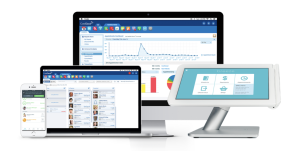
Electronic Health Records (EHR) Software
Electronic health records (EHR) software is a fundamental tool used by medical billers and coders to access and review patient records. This software allows them to retrieve vital information, such as diagnoses, procedures, medications, and test results, necessary for accurate coding and billing.
Medical Coding Software
Medical coding software, such as EncoderPro and CodeManager, provides medical billers and coders with a comprehensive database of codes and guidelines. These software tools facilitate the assignment of the appropriate codes for diagnoses, treatments, procedures, and services, ensuring accuracy and compliance.
Billing and Practice Management Software
Billing and practice management software, such as Epic Resolute, AthenaCollector, or NextGen, streamline the billing process by enabling medical billers and coders to submit claims electronically, track claim statuses, and manage the financial aspects efficiently. These software tools enhance workflow management and optimize revenue cycles.
Computer-Assisted Coding (CAC) Tools
Computer-assisted coding (CAC) tools use artificial intelligence and natural language processing to assist medical billers and coders in analyzing clinical documentation and suggesting potential codes. These tools can increase coding accuracy, accelerate the coding process, and reduce the risk of human errors.
Optical Character Recognition (OCR) Software
Optical Character Recognition (OCR) software converts non-editable documents, such as scanned paper records or PDF files, into editable text. Medical billers and coders can utilize OCR software to extract necessary information and convert it into a format that can be easily integrated into coding and billing processes.
Conclusion
Medical billing and coding are integral parts of the healthcare industry, ensuring accurate and efficient financial transactions. The various types of medical billing and coding, including outpatient, inpatient, professional, facility, and specialty-specific, cater to different settings and specialties within healthcare. Medical billers and coders require specific skills and knowledge, including in-depth understanding of coding systems, attention to detail, analytical and problem-solving abilities, organizational skills, good communication skills, time management skills, ethical and professional conduct, and adaptability for continuous learning. The use of software and tools, such as electronic health records (EHR) software, medical coding software, billing and practice management software, computer-assisted coding (CAC) tools, and optical character recognition (OCR) software, enhances accuracy, efficiency, and productivity in medical billing and coding processes. With their expertise and the support of advanced technologies, medical billers and coders contribute significantly to ensuring effective healthcare administration.
